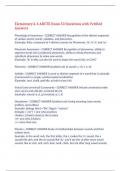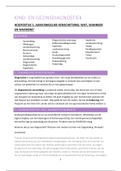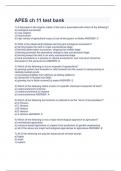College aantekeningen
Advanced Neuropsychology | Case Study C | Profile Summary | Utrecht University | A+ Report
- Instelling
- Universiteit Utrecht (UU)
Neuropsychological Profile Summary (Case Study) covering the biopsychosocial, presenting symptoms, clinical interview observations, profile summary of a 61-year old experiencing cognitive delcine.
[Meer zien]













